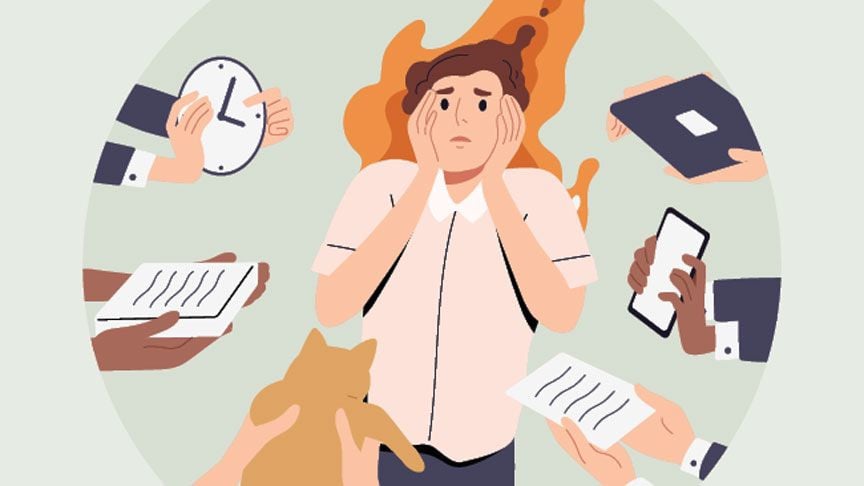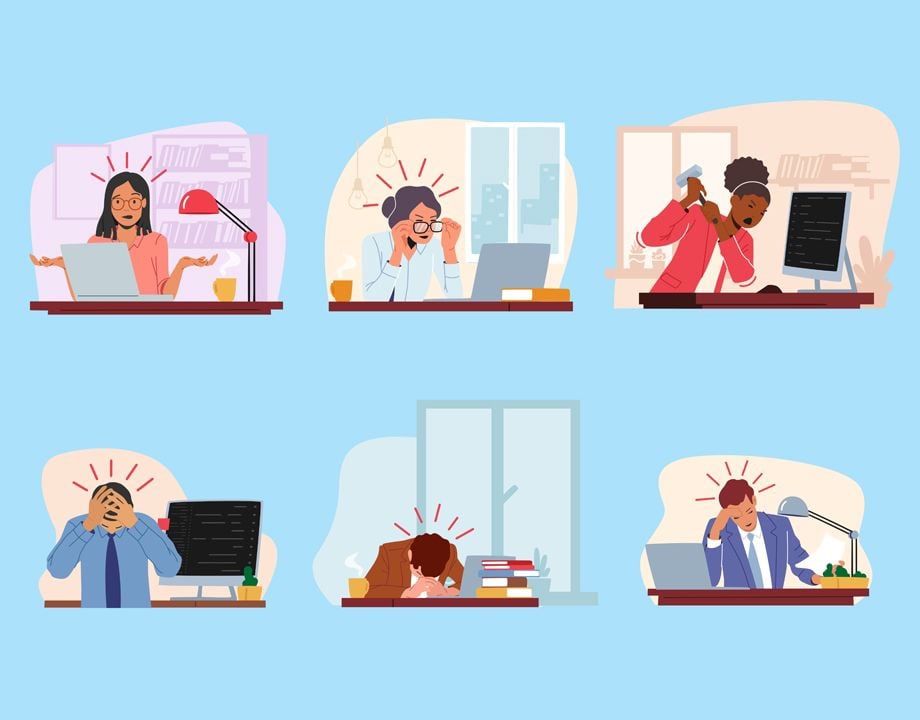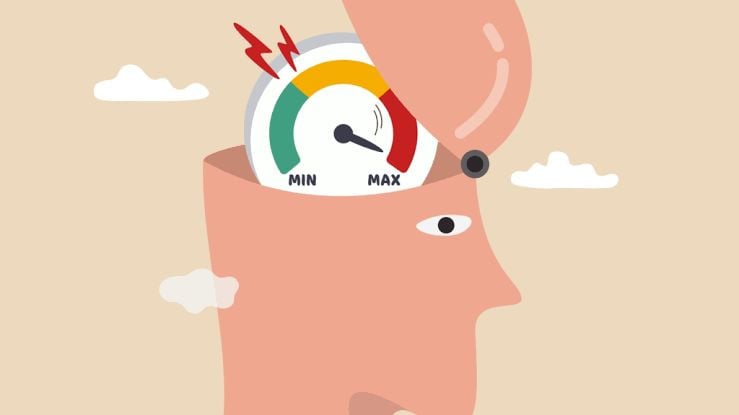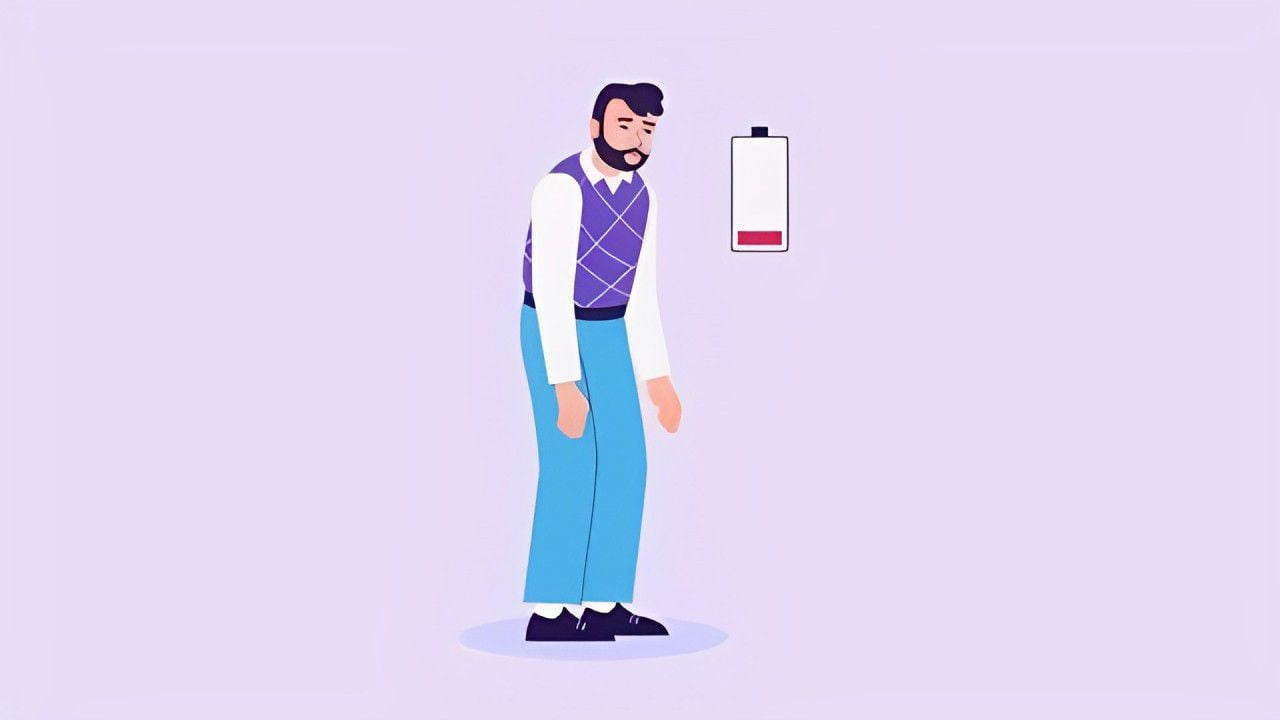Everyday stress from work is common. But how much is too much? While everyone has challenging days in the office (whether you work remotely or on-site), consistently managing excessive stress can lead to burnout symptoms.
Employee and job stress has been steadily and consistently rising over the past decade, and this past year saw record levels for the second year in a row. This ongoing and alarming trend has led to a significant increase in workplace burnout. In fact, over a quarter of employees in the United States report experiencing burnout symptoms sometimes, often, or perpetually.
If you've ever experienced burnout, you know it can feel like you're constantly fighting off low energy and fatigue. It feels like the entire weight of the world is on your shoulders and no matter what you do or don’t do, you simply can’t shake it off.
It can be difficult to differentiate whether you're dealing with something like depression versus burnout because of the similarity in symptoms. Here's what you need to know about burnout and how to identify it.
Am I Experiencing Burnout?
Image: Queensland Government via Darling Downs Heal
Burnout refers to a state of chronic physical and emotional exhaustion that stems from workplace stress. If work-related stress isn't managed regularly, it can have physical, mental, and cognitive ramifications. You may feel like you have to work extra hard to maintain satisfactory results, yet despite your efforts, your performance might still suffer.
The Most Common Signs of Burnout
Burnout symptoms are ultimately tied to work, but they often spill over into other areas of your life. Here are some prominent signs to watch for:
-
Insomnia: Difficulty falling or staying asleep, leading to physical exhaustion and irritability. Remember our sleep cycle is deeply connected to our cognition and emotions - your endorphins are directly affected!
-
Aches and Pains: Headaches, muscle tension, or other physical discomforts, including migraines.
-
Detachment: Feeling detached or holding negative attitudes toward colleagues and tasks, which can harm team dynamics.
-
Reduced Attention: Experiencing brain fog, decreased attention span, or weakened cognitive performance.
-
Diminished Sense of Accomplishment: Feeling like your efforts aren't making a difference, leading to a sense of helplessness or lack of motivation.
-
Isolation: Withdrawing from friends and family, with complaints about your lack of presence.

Image: ASME
How to Stay Away from Burnout

Image: Ed Can Help
If you're in a leadership and/or authoritative role, take active measures to create a work environment that encourages well-being. For those with less authority, practice setting boundaries early and often, and don't hesitate to use your nos when needed.
Start by clearly defining the boundaries you'd like to set and be specific when discussing your needs with your manager. For example, instead of saying "I want to work less," say "I want to free up my weekends to recover and come back on Monday ready to perform."
For daily stress relief, turn to movement or mindfulness practices between meetings or before and after work. Whether it's yoga, deep breathing, or guided meditation, the goal is to engage in one activity with complete presence.
Return to the basics: focus on eating regular meals and getting a full night's rest. If you need additional support, don't hesitate to reach out to friends, family, a therapist, or even your colleagues.
What to Do Once You’ve Experienced Burnout
The best treatment for burnout is prevention. Once you realise you're experiencing burnout, you may need to intensify your self-care routine. However, if you still find it difficult to cope, professional help may be necessary.
You Might Not be Depressed, Maybe You’re Burned-out
While burnout and depression share similar symptoms, they are distinct conditions. Burnout is specifically related to work-related stress, whereas depression is a broader mental health condition that can affect various aspects of life. Understanding this difference is crucial for seeking the appropriate treatment.

Image: Shutterstock
What Happens When You Don’t Treat Burnout
If burnout is left untreated, symptoms will likely escalate faster than you can comprehend. These symptoms are your body's way of signalling that you need to pause and reset. Ignoring them can lead to:
-
Regular panic attacks
-
Decrease in job performance
-
Decreased attention span
-
Unhealthy fluctuations in weight
-
Long-term strains on personal relationships
-
Lowered immunity
-
Potential mental health complications
Burnout is a serious issue that can affect all aspects of your life, but recognizing the signs and taking proactive steps can make a significant difference. By setting boundaries, practising self-care, and seeking support when needed, you can manage stress and prevent burnout effectively Remember, your well-being is a priority, and addressing burnout can lead to a healthier, more balanced life.









COMMENTS
Comments are moderated and generally will be posted if they are on-topic and not abusive.
For more information, please see our Comments FAQ